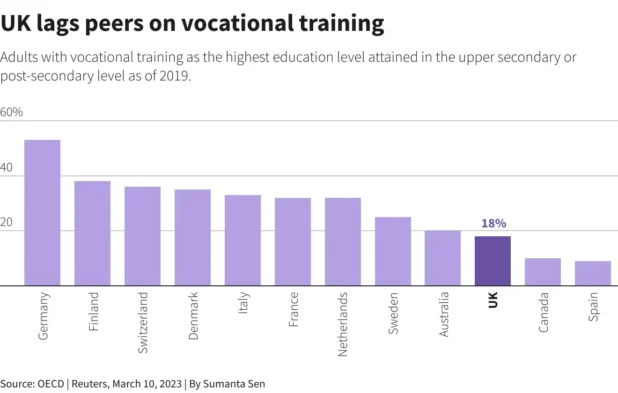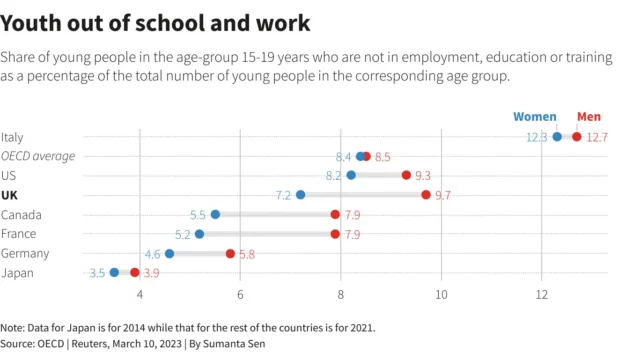Webmart Founder and Chairman Simon Biltcliffe
We have a competency crisis across the Western world.
I think it’s probably a lot more to do with technology, in particular what smart phones are doing to the brain, than it is to do with the eduction system, and I think insofar as the eduction system is bad, it is bad because the people running it are incompetent.
However, it is interesting to consider the education system.
Frustrated with England’s education system, Simon Biltcliffe spends a lot of time training new hires at his marketing firm in the “soft skills” he and many employers say the country’s sluggish economy badly needs.
Finding that new starters often struggle to think on their feet, he sets them workplace challenges to learn to solve problems at pace and in teams. Many don’t adapt, leading to high attrition after three- and six-month reviews.
Across Britain, Biltcliffe’s frustrations are shared by businesses who say the nation’s schools, technical colleges and apprentice schemes are not turning out the workers they need, from software coders and designers to skilled machinists.
“There needs to be a step change,” Biltcliffe said, speaking at the offices of Webmart – which advises clients on the carbon footprint of their marketing operations – in an industrial estate in Barnsley, a former coal town in northern England. Neighbouring businesses include an IT security firm and other companies far removed from the region’s mining past.
Biltcliffe described the education system as “not fit for purpose” in a changing economy where the growth of automation and artificial intelligence will make creative skills and adaptability all the more important.
While Britain boasts world-leading universities, top scientists and a growing share of young people who continue academic studies after 18, less than a fifth of 25-64 year-olds have a vocational qualification, compared with more than half in Germany, according to the Organisation for Economic Co-operation and Development.
Biltcliffe and other employers argue that changes need to be made not only in post-school training, but in schools themselves, which they and some educational campaigners criticise for increasingly promoting memorisation for tests at the expense of creative thinking and practical learning.
The Edge Foundation, which seeks to improve ties between education and employers, says time for subjects such as computing and practical science work has been squeezed over the past decade, and that 71% fewer pupils studied design and technology courses to exam level in 2022 than in 2010.
Subjects that have seen big increases over the past decade included geography and history.
Despite the focus on exams, around 100,000 people leave school every year without required standards in English and maths and Britain has one of the highest rates of young people not in education, employment or training among the world’s leading economies.
At Webmart – with 43 staff and annual sales of about 20 million pounds – Biltcliffe says getting new hires up to speed in how to engage with clients or meet deadlines acts as a brake at a time when demands are getting ever more immediate.
“You’re slowing down really quite a lot to go at the pace of the education system,” he said of his company, which began as a print management firm in 1996.
The memorization conspiracy in education is part of the feminist conspiracy. Women are much less competent, generally, but they are also significantly better at memorization, i.e., test-taking. Therefore, for the sake of equality, test-taking is the entire focus of the modern education system.
Again, the problems are bigger. But it’s fine to just blame it all on women.
 Daily Stormer The Most Censored Publication in History
Daily Stormer The Most Censored Publication in History









